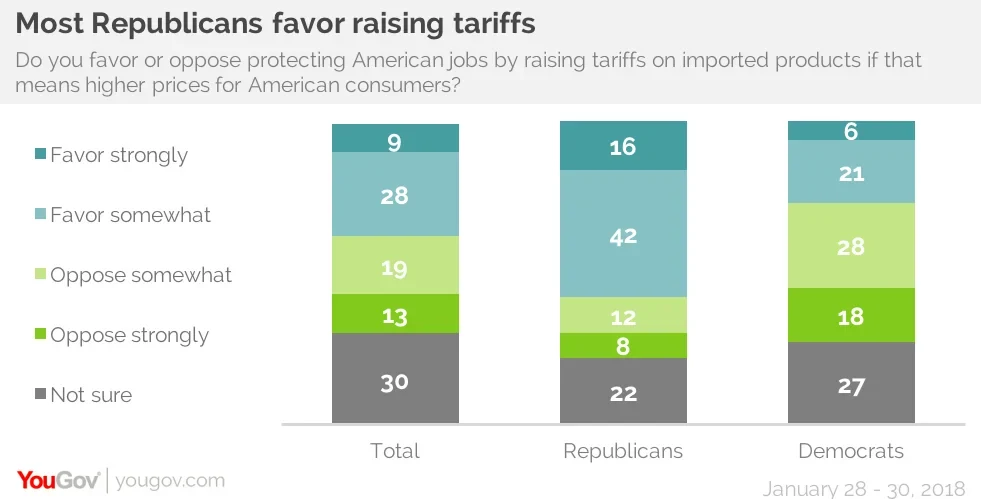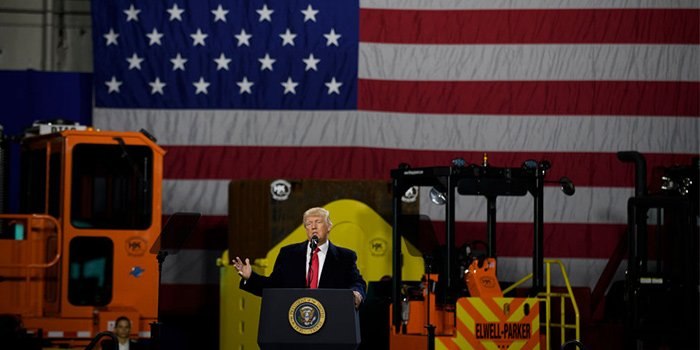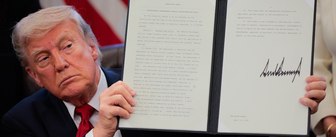37% of Americans favor a protectionist tariff even if prices go up, while 32% oppose
Trade as a political issue is problematic for Americans, many of whom aren’t quite sure whether or not tariffs on imported goods protect American jobs. In the latest Economist/YouGov Poll, the President’s latest tariffs get mixed reviews or more questions. More Americans aren’t sure about the general impact of tariffs on jobs than say they do or don’t protect American jobs.
Republicans with an opinion think tariffs do protect jobs; Democrats and independents aren’t so sure. Overall, just under a third think tariffs actually accomplish what their proposers set out to do – save American jobs.
Tariffs are seen as tools to be used for certain economic and political ends. Less than one in ten oppose tariffs in principle, and say the government should never interfere with international trade – that’s true for Republicans and Democrats alike. Three times as many say they aren’t sure when tariffs should and should not be used. Republicans are more likely than others to favor imposing tariffs in order to protect US businesses and workers from unfair foreign trade and labor practices, while Democrats are more likely than others to support tariffs to protect the environment and to stop human rights abuses of foreign workers. Republicans also are more likely to accept tariffs as punishments against countries that impose tariffs on US goods.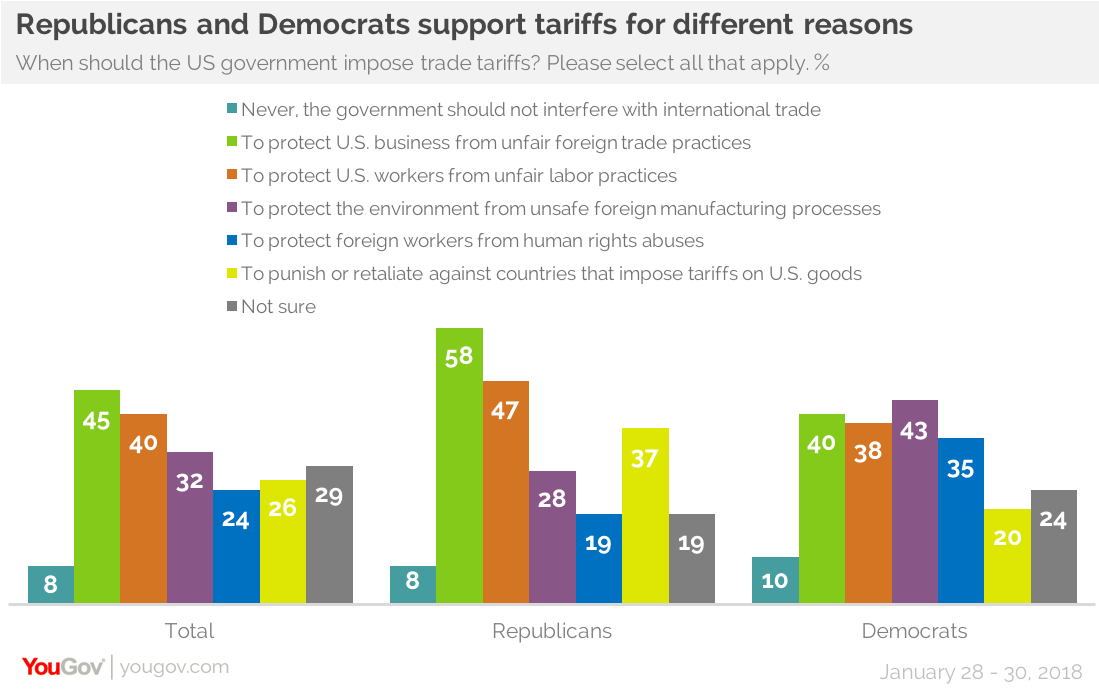
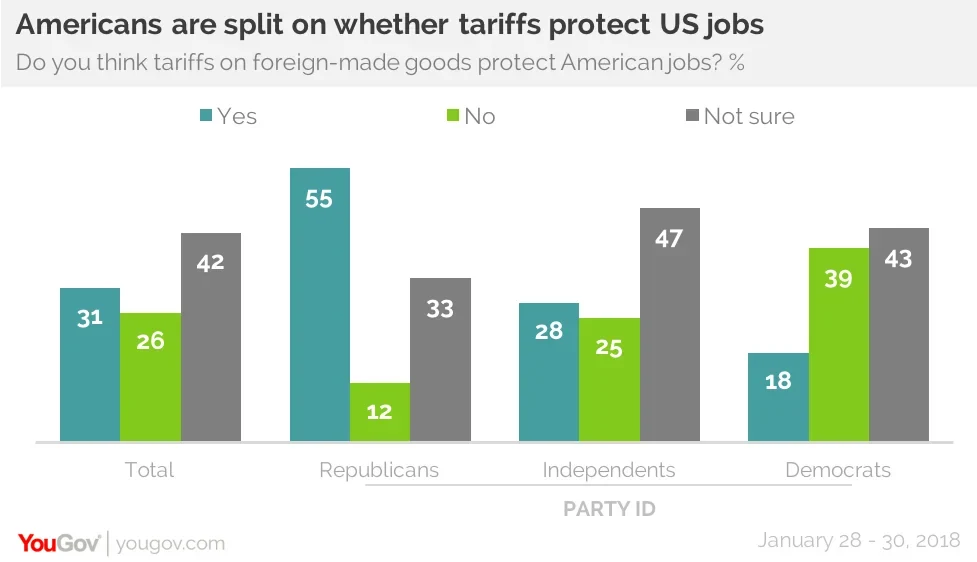
So when it comes to a possible tariff related trade-off between protecting jobs and keeping prices low, Americans come down – narrowly – on the side of jobs. 37% favor such a policy, while 32% do not. Just under a third aren’t sure. Republicans favor tariffs even if it means higher prices by nearly three to one.
Republicans have been responsible for the imposition of some famous tariffs throughout American history (the McKinley tariff of 1890 and the Smoot-Hawley Tariff of 1930 as examples), but there is also support for free trade among GOP leaders today. But the Republican rank and file in this poll, following the President’s lead, are more likely to say at least one treaty, the North American Free Trade Agreement, negotiated during the Republican George H.W. Bush Administration, has had a negative effect on the American economy than to believe the opposite.
The President’s position is clear – in his State of the Union message, Mr. Trump referred to “decades of unfair trade deals” and declared “the era of economic surrender is over.”
Republicans favor the two tariffs President Trump has just imposed on washing machines and on solar panels, though skepticism is high among the public in general. Just 24% nationally think the tariff on foreign-made solar panels will increase American jobs, and 26% think the tariff on foreign-made washing machines will increase jobs. More think jobs installing solar panels in the US will decrease than increase. Americans as a group expect prices for washing machines will rise – and more think all washing machine prices will go up than think it will only be prices on foreign-made products.
The President has spoken – and tweeted – about respect for the United States in the world, noting that he believes the country is becoming more respected. Americans are not yet sure that has happened, or that it will happen by the end of the President’s first term in office. A majority say that the country is less respected now than it has been in the past, including just under a third of Republicans.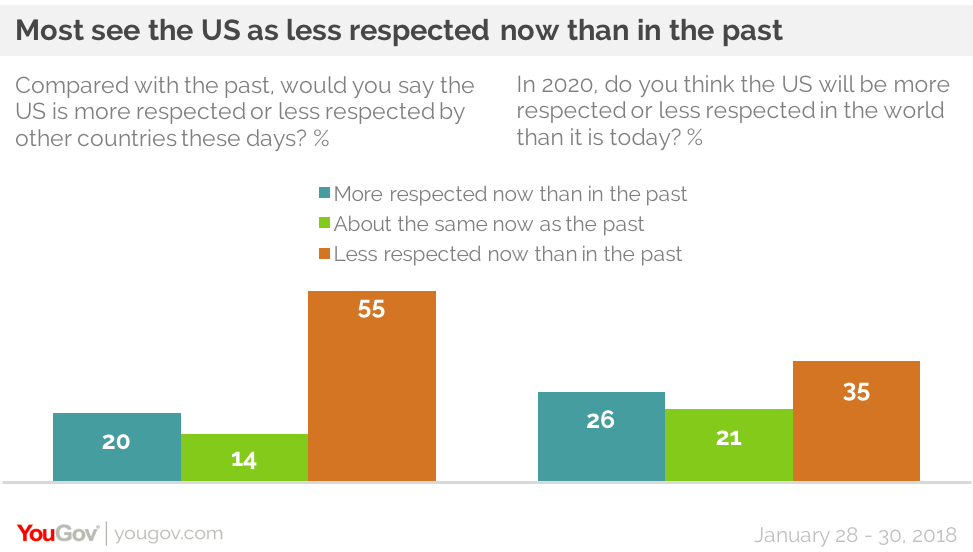
As for what will happen by 2020, more think it will be less respected now than today than say the opposite, though 55% of Republicans are optimistic that the US will in fact gain greater global respect by then.
Trade policy is part of foreign policy, and President Trump’s overall foreign policy performance continues to be seen negatively: in this week’s poll, 35% approve but 46% do not.
Read more topline and table results here
Image: Getty
